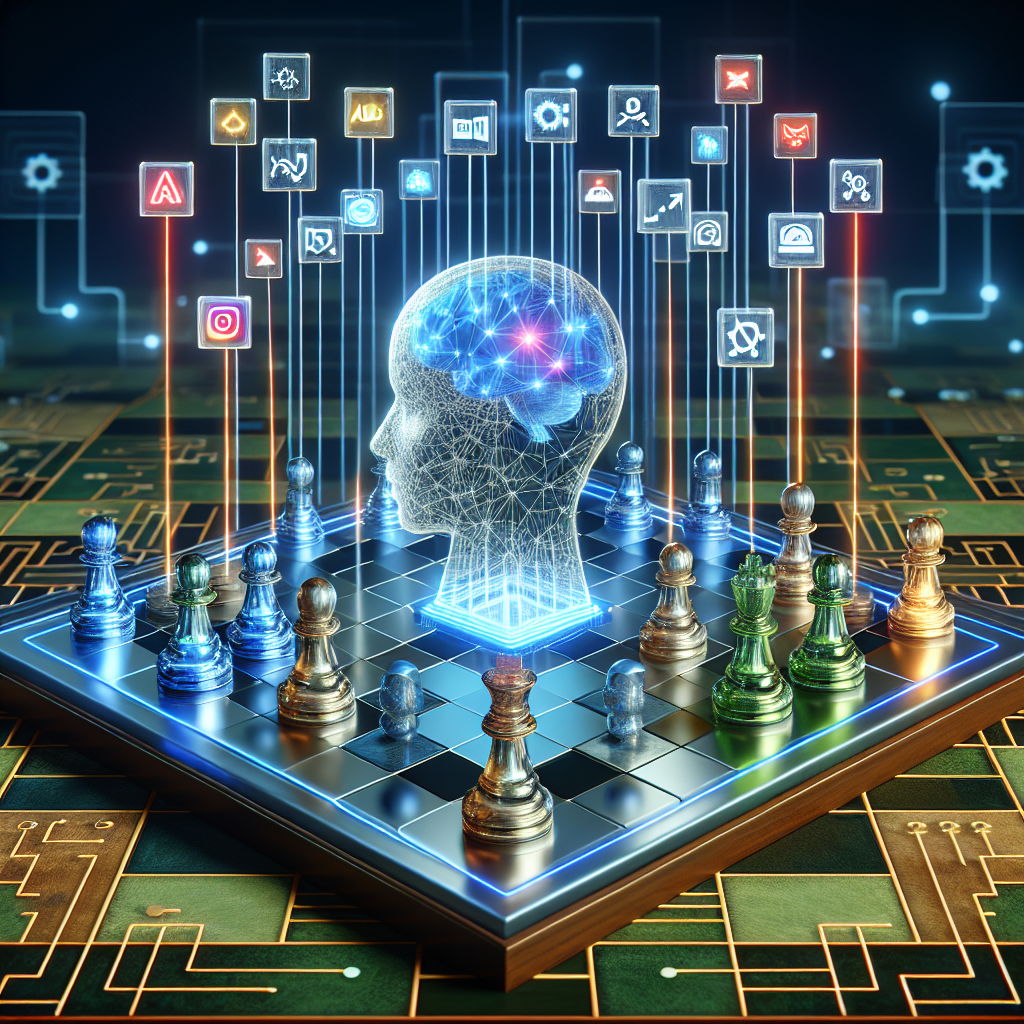In recent years, the gaming industry has seen a significant shift towards utilizing artificial intelligence (AI) for marketing strategies. AI-powered game marketing has become a game-changer for developers and marketers alike, as it allows for more targeted and personalized campaigns that can reach a wider audience. In this article, we will explore the various AI-powered game marketing strategies and how they are revolutionizing the industry.
1. Personalized Marketing Campaigns: One of the key benefits of using AI in game marketing is the ability to create personalized campaigns for individual players. AI algorithms can analyze player data and behavior to create tailored marketing messages that resonate with each player. This level of personalization can significantly increase engagement and conversion rates, as players are more likely to respond to messages that are relevant to their interests and preferences.
2. Predictive Analytics: AI-powered predictive analytics can help developers and marketers anticipate player behavior and trends, allowing them to make data-driven decisions when planning marketing campaigns. By analyzing player data and in-game metrics, AI algorithms can predict which players are most likely to make a purchase, churn, or engage with certain in-game features. This information can be used to optimize marketing strategies and maximize ROI.
3. Dynamic Pricing: AI-powered dynamic pricing is another effective marketing strategy that can help developers increase revenue and maximize player engagement. By using AI algorithms to analyze player data and market trends, developers can adjust in-game prices in real-time to optimize revenue and incentivize player spending. Dynamic pricing can also help developers segment players based on their willingness to pay, allowing for more targeted pricing strategies.
4. Personalized Recommendations: AI-powered recommendation engines can help developers increase player engagement and retention by recommending personalized content and offers to players. By analyzing player data and preferences, AI algorithms can suggest in-game items, events, or promotions that are likely to appeal to each player. This level of personalization can enhance the player experience and drive repeat purchases.
5. Chatbots and Virtual Assistants: AI-powered chatbots and virtual assistants can be used to improve player support and engagement in games. These AI-powered tools can provide real-time assistance to players, answer frequently asked questions, and guide players through in-game challenges. By using chatbots and virtual assistants, developers can provide a more personalized and responsive player experience, leading to increased player satisfaction and retention.
6. Targeted Advertising: AI-powered targeted advertising can help developers reach the right audience with the right message at the right time. By analyzing player data and behavior, AI algorithms can identify high-value player segments and target them with relevant ads and promotions. This targeted approach can significantly improve the effectiveness of marketing campaigns and increase ROI.
FAQs:
Q: How can AI-powered game marketing benefit developers?
A: AI-powered game marketing can benefit developers by helping them create personalized campaigns, predict player behavior, optimize pricing strategies, increase player engagement, improve player support, and target advertising more effectively.
Q: What types of AI algorithms are commonly used in game marketing?
A: Commonly used AI algorithms in game marketing include machine learning algorithms, deep learning algorithms, natural language processing algorithms, and reinforcement learning algorithms.
Q: How can developers implement AI-powered game marketing strategies?
A: Developers can implement AI-powered game marketing strategies by partnering with AI technology providers, integrating AI tools and algorithms into their marketing platforms, and analyzing player data to create personalized campaigns and optimize marketing strategies.
Q: What are the challenges of implementing AI-powered game marketing?
A: Challenges of implementing AI-powered game marketing include data privacy concerns, algorithm bias, technical complexity, and the need for skilled AI professionals. Developers should carefully consider these challenges when implementing AI-powered marketing strategies.
In conclusion, AI-powered game marketing strategies are revolutionizing the gaming industry by enabling developers to create personalized campaigns, predict player behavior, optimize pricing strategies, increase player engagement, improve player support, and target advertising more effectively. By leveraging the power of AI, developers can enhance the player experience, drive revenue growth, and stay ahead of the competition in an increasingly competitive market.

